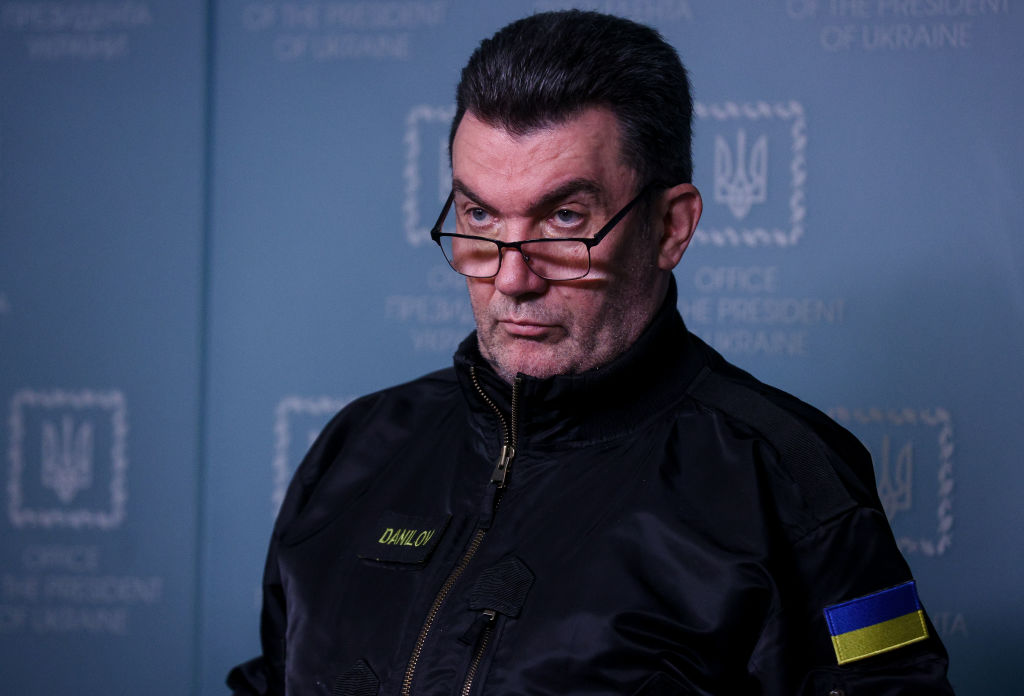The Ukrainian government's clampdown on strategic companies owned by oligarchs was swift and unexpected.
Invoking special provisions under martial law, the Defense Ministry seized five companies associated with controversial businessmen Ihor Kolomoisky, Kostyantyn Zhevago, Konstantin Grigorishin, and Viacheslav Bohuslaiev.
The companies seized include fossil fuel companies Ukrnafta and Ukrtatnafta, truck company AvtoKrAZ, industrial power transformer producer Zaporizhtransformator, and aircraft engine producer Motor Sich.
Oleksiy Danilov, the secretary of the National Security and Defense Council, said on Nov. 7 that the move was made under wartime laws "in connection with military necessity."
According to Defense Minister Oleksii Reznikov, the move is “not a nationalization,” but rather a wartime decision, and all the companies will be returned to their owners once martial law is no longer in place.
Every oligarch on the list has faced legal issues at least once in his career.
Most recently on Oct. 23, Ukrainian authorities detained Bohuslaiev, the head of now-nationalized Motor Sich, for allegedly collaborating with Russia.
Ukraine’s Security Service said Bohuslaiev's arrest is "part of a criminal case on Motor Sich's illegal supply of military equipment for Russian attack aircraft." The company’s leadership is accused of cooperating with representatives of the Russian state-owned "Rostec" defense enterprise, "one of the main producers of weapons for the Russian military."
Yet, despite former owners having dubious reputations and a long trail of criminal proceedings, the decision to place private stakes under the control of the Defense Ministry has raised eyebrows in the business community.
The move creates a dangerous precedent, Andriy Boytsun, the editor of Ukrainian State-Owned Enterprises Weekly, told the Kyiv Independent.
"You get more and more state-owned companies in a military economy where decisions are taken directly by the government," he said. "You must be very cautious about moving towards a Soviet economy."
"I will not be surprised if Ukraine has just shot itself in the leg," he added.
Kolomoisky's loss
The oligarchs stripped of their assets on Nov. 6 will hardly receive sympathy in Ukraine. For Kolomoisky, it's not the first time his assets were taken by the state.
Kolomoisky and his business partner Hennadiy Boholyubov were once the owners of PrivatBank, Ukraine's largest financial institution. In December 2016 during then-President Petro Poroshenko’s tenure, the state nationalized Privatbank, on the verge of bankruptcy.
According to an independent audit, PrivatBank had a $5.5 billion hole in the bank's ledger, leading to the now state-owned bank going after Kolomoisky in courts in Ukraine, Switzerland, the U.K., and the U.S.
Kolomoisky and Boholyubov were alleged to have committed "large-scale and coordinated fraud."
Despite past business ties to current President Volodymyr Zelensky, the change in leadership didn't help Kolomoisky.
Kolomoisky, once deemed the most powerful businessman in the country, was allegedly stripped of his Ukrainian citizenship on July 20, according to Ukrainian media and several top officials and politicians.
Now the oligarch has lost additional assets – Kolomoisky and Boholyubov reportedly owned roughly 60% of the shares in Ukrtatnafta, one of the country's largest producers of oil products.
About 42% of the Ukrnafta oil company also belonged to companies associated with Kolomoisky.
Bohuslaiev arrested, Zhevago on the run
The government also took over Motor Sich, one of the world's leading manufacturers of aircraft engines based in Zaporizhzhia, whose head, Bohuslaiev, was arrested on Oct. 23.
He is suspected of collaborating with Russia.
The Security Service published Bohuslaiev's phone conversations which allegedly confirm his cooperation with Russia.
In these conversations, Bohuslaiev offered top management of Russian helicopter manufacturing and repair companies Ukrainian-made engines for attack helicopters and suggested shipping them to Russia through Croatia, Kazakhstan, or Kyrgyzstan.
Bohuslaiev also justified Russia's attack on his plant and said he hoped Russian President Vladimir Putin would not stop the advance of his troops.
"We (in Zaporizhzhia Oblast) have a nuclear power plant and hydroelectric plant. (Ukrainian authorities) are scared... They will go away. (Volodymyr) Zelensky will be kicked out, and they will leave, no problems," Bohuslaiev allegedly said.
Zhevago, who owns AvtoKrAZ and London-listed iron pellet producer Ferrexpo, has been put on an international wanted list for embezzlement and money laundering in connection with the disappearance of $113 million from the now-defunct Finance and Credit bank.
AvtoKrAZ has been producing special-purpose vehicles for both civilian and military use, while its owner has been wanted in Ukraine.
Russia's Grigorishin, a naturalized Ukrainian citizen, was the owner of Zaporizhtransformator, which prior produced equipment for civilian and military means.
Security Council Secretary Danilov justified the decision to strip dubious oligarchs of their assets.
"In order to meet the needs of the country under martial law, we have the right to make such decisions," he said.
Not a nationalization?
"This is not a nationalization... this is a direct taking-over of assets during wartime. These are different legal terms," Defense Minister Oleksii Reznikov said after the takeover.
According to Reznikov, the assets will be returned to their rightful owners after martial law is lifted.
According to this assessment, Ukrainian law states that the seized shares must be compensated.
Still, Boytsun believes martial law puts the rule of law at stake.
"Let the prosecutors prosecute him if he's a criminal," Boytsun said. "That's the proper way to go," he added, saying that expropriating property is bad for business.
Economist Oleksii Kusch says the oligarchs can hardly answer to the seizing. "It's unlikely that the oligarchs will resist such pressure," Kusch said.
Zhevago and Grigorishin are on the run, Bohuslaiev is behind bars, and Kolomoisky's Ukrainian citizenship is under a lot of judicial pressure.
However, Boytsun and Kusch both agree the government may face other issues in the long run.
The assets of Ukrtatnafta were heavily damaged by Russian missile strikes and need significant funds for restoration. AvtoKraz is facing substantial financial losses. Zaporizhtransformator is bankrupt and requires significant bailing out to resume operations.
The rationale behind the takeover move is unclear, Boytsun said, because the state won't be able to manage the assets in wartime.
"If Ukraine starts nationalizing, confiscating, repossessing things, it will get even more of such assets (it can't control)," he said.
"Ukraine has not demonstrated much ability in running state-owned companies," Boytsun said. "This is a move in the wrong direction."
Note from the author:
Bonsoir, this is Alexander Query, thank you for reading this story. I hope you enjoyed it, so to speak. Ukraine is my second home, and I consider it an honor to bring you the latest from what’s happening on the ground here.
I’m incredibly lucky to have been working with the Kyiv Independent team since day one, a team that’s working 24/7 to bring you the latest news and in-depth articles to understand the situation here. These are troubled times, but we will prevail, thanks to our readers' support. Let us be your eyes and ears on the ground by supporting us on Patreon.













